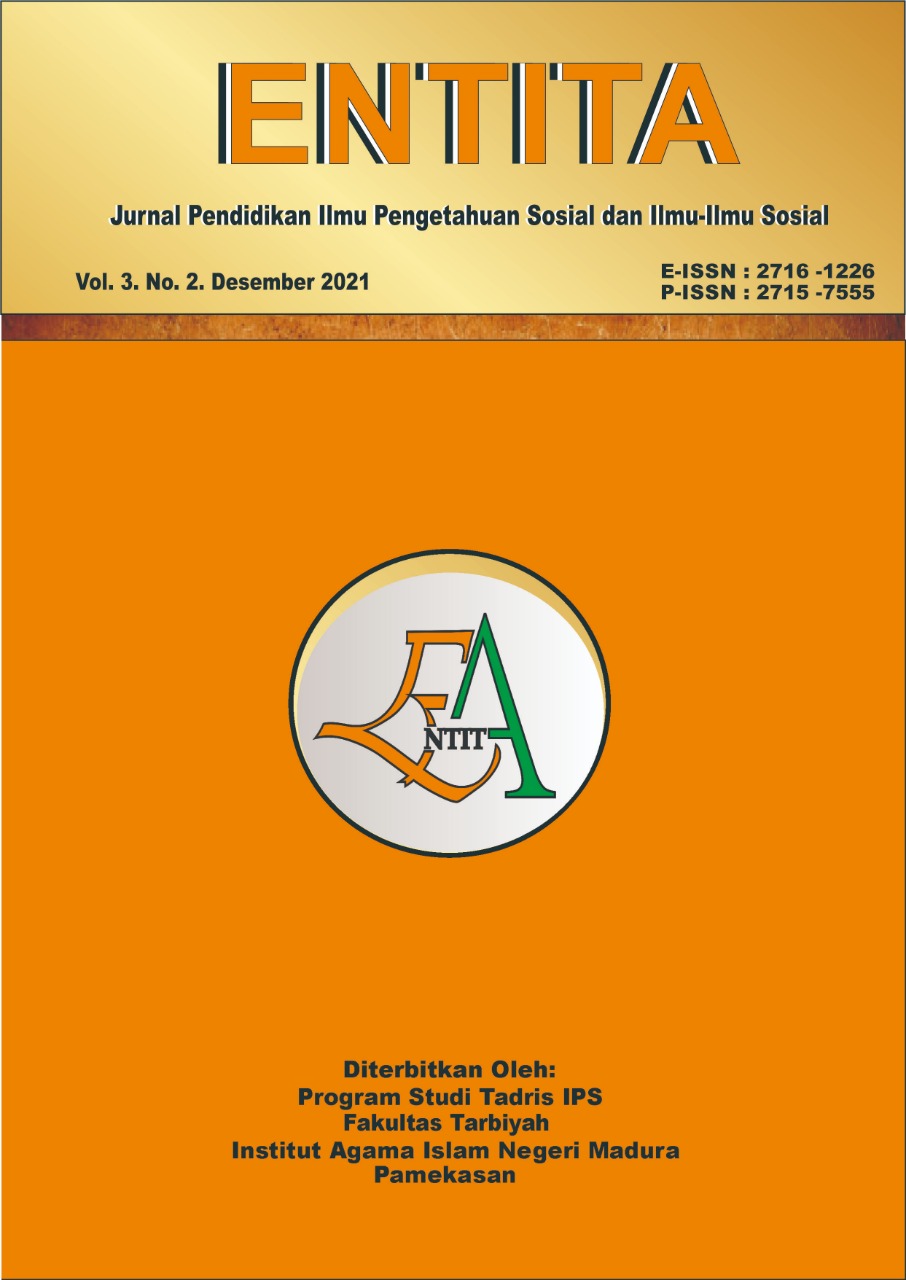Pemenuhan Hak Narapidana Disabilitas dalam Memenuhi Kesejahteraan Sosial Kelompok Rentan di Lembaga Pemasyarakatan
 Abstract views: 562
,
Abstract views: 562
,
 PDF downloads: 737
PDF downloads: 737
Abstract
In providing protection and guaranteeing the rights of persons with disabilities, the Government makes laws and regulations, namely Law Number 8 of 2016. As a human being, of course, persons with disabilities are not free from mistakes, they can also be subject to imprisonment like other citizens. Prisons as a forum for fostering inmates who have been convicted of committing a crime are not entitled to take away the rights they should have. Inmates only lose their freedom of movement and still get human rights. Prisoners with disabilities have different special needs, where this right must be fulfilled by prisons as stated in Law Number 8 of 2016 concerning Persons with Disabilities. The rights they should get can be in the form of special residential rooms, special toilets for disabilities, special disabled lanes, and wheelchairs/canes to facilitate mobility. In its implementation, there are still some obstacles in fulfilling the rights of prisoners with disabilities, therefore this study uses a normative method aimed at examining library materials and secondary materials such as related laws and regulations. The results of the study indicate that the fulfillment of the rights of prisoners with disabilities in prisons is still not optimal, so there is a need for evaluation and quality improvement carried out by prisons and related institutions, besides that further regulations are needed that focus on guaranteeing the rights of prisoners with disabilities. In its implementation, there are still some obstacles in fulfilling the rights of prisoners with disabilities, therefore this study uses a normative method aimed at examining library materials and secondary materials such as related laws and regulations. The results of the study indicate that the fulfillment of the rights of prisoners with disabilities in prisons is still not optimal, so there is a need for evaluation and quality improvement carried out by prisons and related institutions, besides that further regulations are needed that focus on guaranteeing the rights of prisoners with disabilities. In its implementation, there are still some obstacles in fulfilling the rights of prisoners with disabilities, therefore this study uses a normative method aimed at examining library materials and secondary materials such as related laws and regulations. The results of the study indicate that the fulfillment of the rights of prisoners with disabilities in prisons is still not optimal, so there is a need for evaluation and quality improvement carried out by prisons and related institutions, besides that further regulations are needed that focus on guaranteeing the rights of prisoners with disabilities.
Downloads
References
Abdullah, R. H. (2015). URGENSI PENGGOLONGAN NARAPIDANA DALAM LEMBAGA PEMASYARAKATAN Urgency of Class of Prisoners in the Correctional Institution. Fiat Justisia Jurnal Ilmu Hukum, 9(1).
Basri, H. (2021). Perlindungan Hukum Terhadap Pelaku Tindak Pidana Berdasarkan Sistem Peradilan Pidana Indonesia. SIGn Jurnal Hukum, 2(2), 104–121. https://doi.org/10.37276/sjh.v2i2.90
Dewi, R. K., Pramana, R. P., Sadaly, H., Dewi, R. K., Pramana, R. P., & Sadaly, H. (2020). Kendala Mewujudkan Pembangunan Inklusif Penyandang Disabilitas. The SMERU Research Institute.
Pawestri, A. (2017). 164 164 There are Law Number 39 of 1999 which is supplemented by Law Number 19 of 2011. The replacement of Law Number 4 of 1997 with Law Number. 2(1). http://www.republika.co.id/berita/nasional/umu
pemasyarakatan.com. (n.d.). 10 Prinsip Pemasyarakatan. https://www.pemasyarakatan.com/sepuluh-10-prinsip-pemasyarakatan/
Pujiono, D. W. (2021). NUSANTARA: Jurnal Ilmu Pengetahuan Sosial PENYEDIAAN FASILITAS BAGI NARAPIDANA PENYANDANG DISABILITAS PADA LAPAS KELAS II A BEKASI 1 Dedy Wasis Pujiono. Penyediaan Fasilitas Bagi Narapidana Penyandang Disabilitas Pada Lapas Kelas II A Bekasi, 8(2), 199–203. https://doi.org/10.31604/jips.v8i2.2021.199-203
Setiady, T. (2010). Pokok Hukum Penitensier. Alfabeta. http://opac.lib.unlam.ac.id/id/opac/detail.php?q1=340&q2=Set&q3=P&q4=-
Soekanto, S. & S. M. (n.d.). Penelitian Hukum Normatif (Suatu Tinjauan Singkat). In Penelitian Hukum Normatif (Suatu Tinjauan Singkat). Rajawali Pers, Jakarta.
Subarji, J. F. (2021). 24977-49744-1-PB. Pemenuhan Hak Atas Kesehatan Bagi Narapidana Disabilitas Ditinjau Dari UU No 8 Tahun 2016 Tentang Penyandang Disabilitas Dan UU No 12 Tahun 1995 Tentang Pemasyarakatan (Studi Kasus Di Lapas Kelas I Lowokwaru Malang), 7.
Undang-Undang Republik Indonesia. (1995). Undang-Undang Republik Indonesia Nomor 12 Tahun 1995 Tentang Pemasyarakatan.
Undang-Undang Republik Indonesia. (1999). Undang-Undang RI Nomor 39 Tahun 1999 Tentang Hak Asasi Manusia.
UU No 8 Tahun 2016. (2016). Undang-Undang Republik Indonesia Nomor 8 Tahun 2016 Tentang Penyandang Disabilitas.
Winarno, S. (1982). Pengantar Penelitian Ilmiah. http://opacarpusdawonosobokab.perpusnas.go.id/detail-opac?id=240
Wirawan, H. F. C. (2021). NUSANTARA: Jurnal Ilmu Pengetahuan Sosial PEMENUHAN HAK NARAPIDANA KELOMPOK RENTAN KHUSUS DISABILITAS DI LAPAS KELAS I MADIUN 1 Hendra Fikry Cindhy Wirawan. 8 No. 3, 238–244. https://doi.org/10.31604/jips.v8i3.2021.238-244
Wulandari, S. (2012). 303-1163-1-SM. Efektifitas Sistem Pembinaan Narapidana Di Lembaga Pemasyarakatan Terhadap Tujuan Pemidanaan, 9.
Copyright (c) 2021 Misbah Ayu Nafarizka

This work is licensed under a Creative Commons Attribution-NonCommercial 4.0 International License.
ENTITA: Jurnal Pendidikan Ilmu Pengetahuan Sosial dan Ilmu-Ilmu Sosial operates an Open Access policy under a Creative Commons Non-Commercial 4.0 International license. Authors who publish with this journal agree to the following terms:
- The copyright of the received article once accepted for publication shall be assigned to the journal as the publisher with licensed under a

- Journal is able to enter into separate, additional contractual arrangements for the non-exclusive distribution of the journal's published version of the work (e.g., post it to an institutional repository or publish it in a book), with an acknowledgement of its initial publication in this journal.
- Journal is permitted and encouraged to post their work online (e.g., in institutional repositories or on their website) prior to and during the submission process, as it can lead to productive exchanges, as well as earlier and greater citation of published work (see The Effect of Open Access).
- Here is Copyright Transfer Form that author can download and send to OJS during submission.

















